You should base your diet on these real, unprocessed, low-carb foods.
- Meat: Beef, lamb, pork, chicken and others. Grass-fed is best.
- Fish: Salmon, trout, haddock and many others. Wild-caught fish is best.
- Eggs: Omega-3 enriched or pastured eggs are best.
- Vegetables: Spinach, broccoli, cauliflower, carrots and many others.
- Fruits: Apples, oranges, pears, blueberries, strawberries.
- Nuts and Seeds: Almonds, walnuts, sunflower seeds, etc.
- High-Fat Dairy: Cheese, butter, heavy cream, yogurt.
- Fats and Oils: Coconut oil, butter, lard, olive oil and cod fish liver oil.
If you need to lose weight, be careful with the cheese and nuts because they’re easy to overeat on. Don’t eat more than one piece of fruit per day.
The only drawback of low-carb is that it means rethinking the whole way you eat. No more (or not much) oatmeal, sub sandwiches, or taco Tuesdays. Luckily, there are all kinds of flavor-packed, low-carb foods out there. Even if you don’t want to count macros, sticking primarily to foods from these lists will automatically keep your carb count low.
Low-Carb Vegetables
1. Zucchini
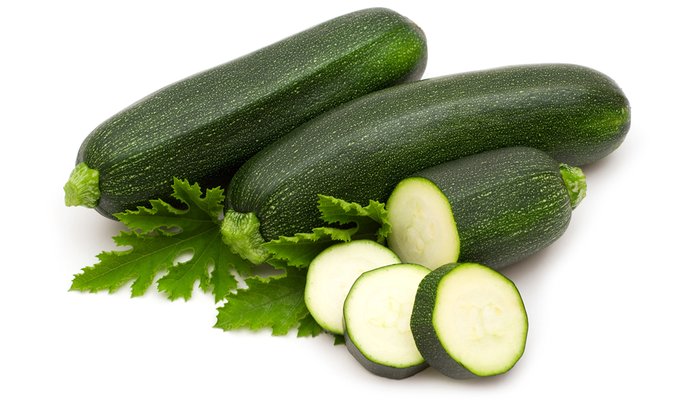
Carb count: 7 grams per 1 medium squash
Juicy zucchini can stand in for a number of high-carb foods. Sub zucchini noodles for pasta, grate it to use as hash browns, or just chop it and sauté it for a quick side.
2. Cauliflower
Carb count: 5 grams per cup
Dubbed the “skinny starch” thanks to its unique texture, cauliflower can be used as a lower-carb alternative for mashed potatoes, mac and cheese, creamy soups, and even pizza crust. Or pulverize a whole raw head in a food processor and use as a substitute for couscous or rice.
3. Swiss Chard
Carb count: 1 gram per cup
Nutrient-dense dark, leafy greens should always be a low-carb addition to your grocery cart, and Swiss chard is no exception. You can steam or sauté the leaves, or use whole, uncooked leaves as an alternative to tortillas when making tacos and wraps.
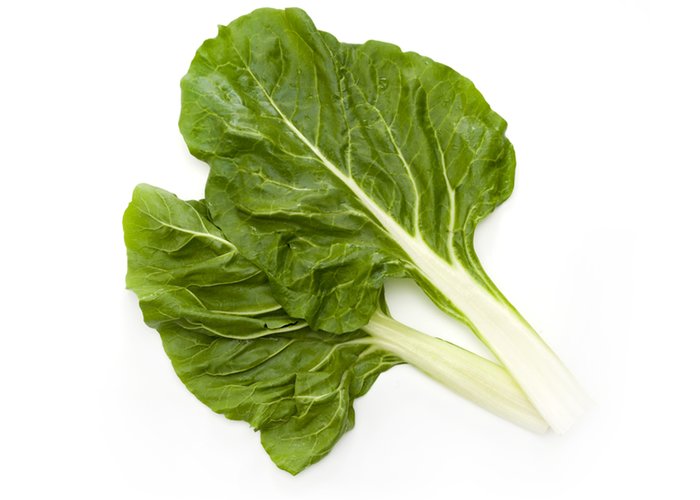
4. Mushrooms
Carb count: 2 grams per cup
From white to cremini to more exotic varieties, these edible fungi are low in carbs but rich in great umami flavor. Large and meaty Portobello mushroom caps can be used as an alternative to hamburger buns, or as a replacement for gut-busting pizza crust when layered with all your favorite toppings.
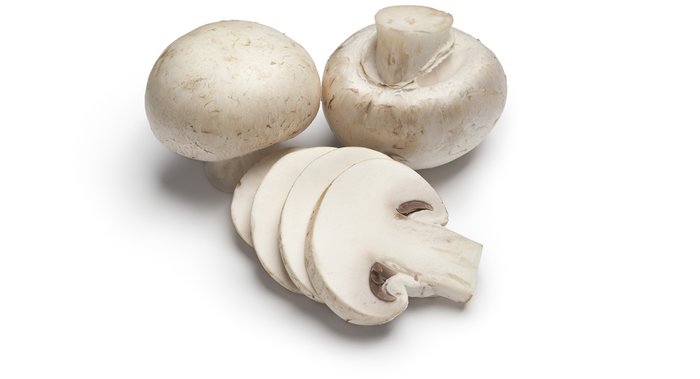
5. Celery
Carb count: 1 gram per stalk
Satisfy your craving for crunch with celery, which has next to no carbs or calories since it’s about 95 percent water. Slather it with almond butter for a shot of healthy fat and fiber.
Nutrition Bonus: Like chard, celery is high in vitamin K.
6. Cherry Tomatoes
Carb count: 6 grams per cup
With better flavor than the bland larger tomatoes sold at the supermarket, cherry tomatoes are a convenient way to bolster the nutritional firepower of your diet without any serious carbohydrate backlash. (And yes, tomatoes are technically a fruit, but since they go great in a salad, we give them a pass.)
Pop them in your mouth for a sweet snack, or toss with oil and roast at 400 degrees until they become tender little flavor bombs.
7. Spaghetti Squash
Carb count: 7 grams per cup
Spaghetti squash earns its name. Once cooked, the flesh of the squash pulls apart into slightly nutty-tasting, noodle-like strands, minus the carbohydrate deluge. Top with your favorite protein-rich meat sauce. Unlike spaghetti, this gourd delivers notable amounts of vitamin C, a nutrient shown to help reduce muscle soreness and oxidative damage following intense exercise.[2]
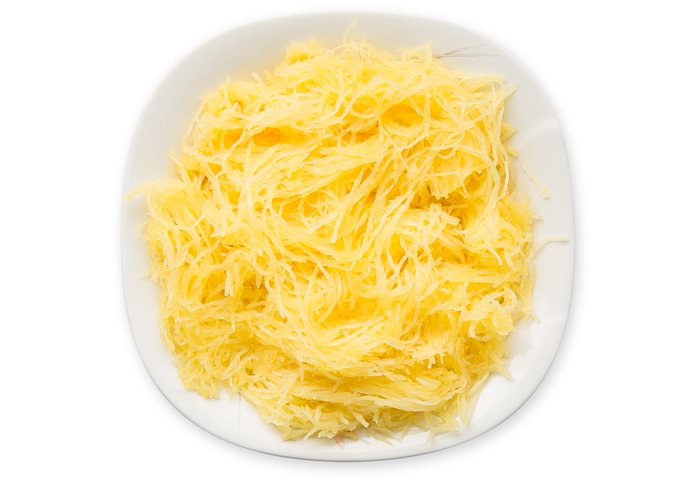
Other Low-Carb Veggies
- Radish
- Asparagus
- Bok choy
- Broccoli
- Spinach
- Arugula
- Bell pepper
- Watercress
Low-Carb Fruits
8. Apricots
Carb count: 8 grams per 2 fruits
While fruits do contain some natural sugars, many are still relatively low in carbs, especially compared to starchy packaged snacks. Apricots only have 4 grams of carbs apiece, and are great as a snack or added to yogurt, salad, or meats like pork and chicken. Plus, orange fruits like apricots are high in beta-carotene, which is good for your brain. [3]
9. Avocado
Carb count: 8 grams per 1/2 avocado
Unlike most of its counterparts in the fruit world—yes, it’s a fruit—avocado is virtually free of sugar. In fact, 75 percent of its carbs come from nondigestible fiber. Avocados are also full of heart-healthy monounsaturated fat.
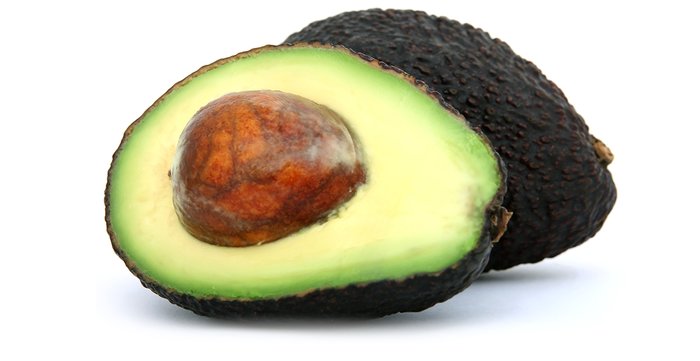
10. Strawberries
Carb count: 11 grams per cup
Among berries, strawberries contain the least sugar, making them a great option to satisfy a sweet tooth. If you’re concerned about possible pesticide exposure, opt for strawberries labelled “organic.” Strawberries are a stellar source of vitamin C, which may help regular gym-goers avoid coming down with the sniffles.[4]
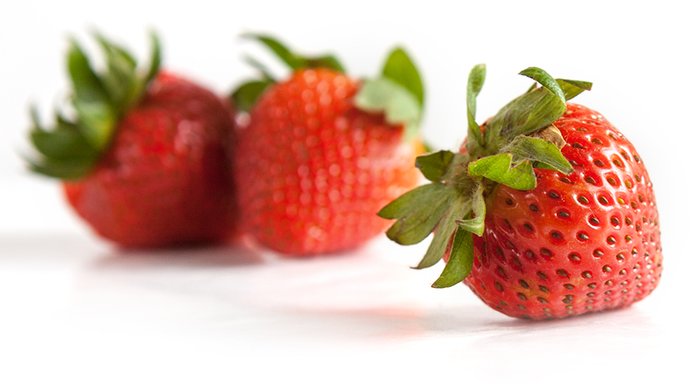
11. Red Grapefruit
Carb count: 9 grams per 1/2 fruit
Time to pucker up to this lower-carbohydrate fruit option, which supplies about 20 percent less sugar than that found in an orange. Just don’t try to tame its sour power by coating it in sugar. You can count on grapefruit for a dose of immune-boosting vitamin C.
Other Low-Carb Fruits
- Rhubarb
- Watermelon
- Peaches
- Star fruit
- Cantaloupe
- Blackberries